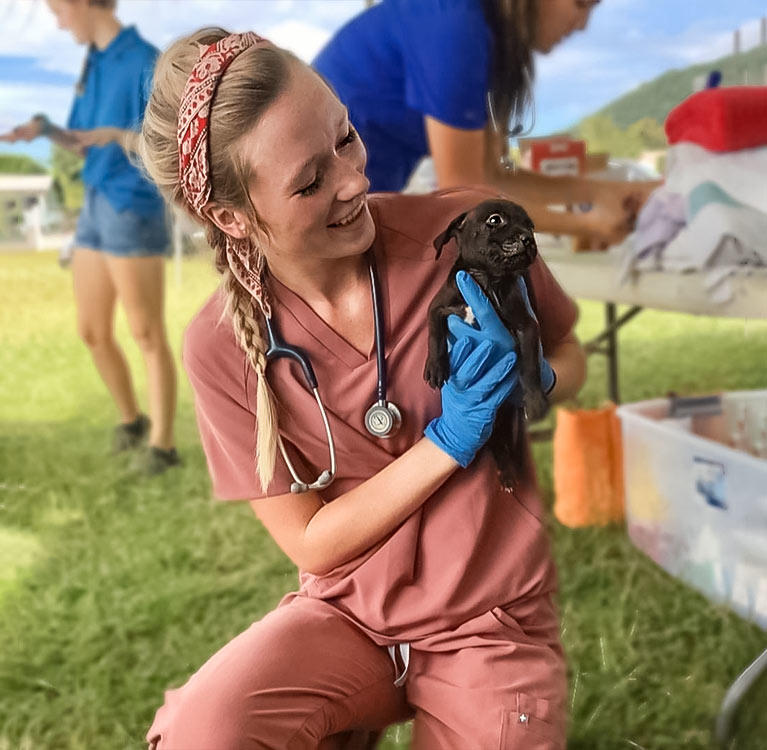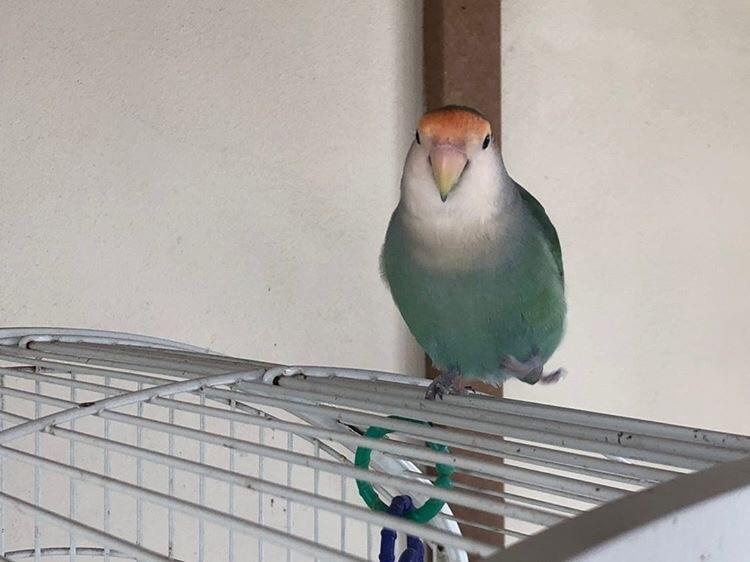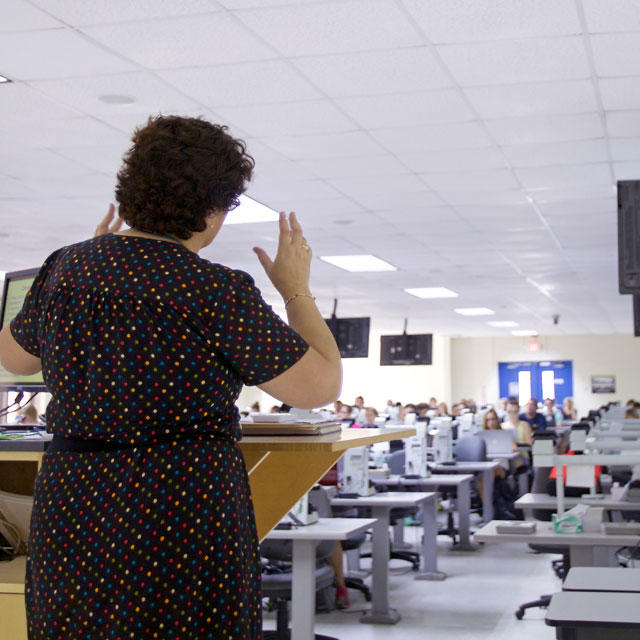Prospective veterinarians can choose to specialize in one of several fields, the most popular being small animal care. Vets in this specialization provide compassionate care to companion animals and help pet owners give their furry friends the best life possible.
Before settling on a specialty, most vets will want to know what they can expect from a career as a small animal veterinarian, what a typical day on the job is like, and what the future holds for those in the field.
What is a Small Animal Vet?
Small animal veterinarians, or companion animal vets, care for domesticated animals like dogs, cats, caged birds, and more.
Duties for small animal veterinarians include diagnosing and treating injuries and illnesses, as well as routine care, such as flea, tick, and heartworm prevention. Additionally, they perform reproductive surgeries like spay and neuter procedures and humane euthanasia when the time comes.
Small animal vets also educate owners on ways to keep their pets happy and healthy.
Related Post: Taking Care of Small Animals (Basic Guide)
Why are Small Animal Vets Important?
Small animal veterinarians are essential care providers for companion animals.
These medical professionals equip pet owners with the information they need to ensure their pets are healthy and happy. Many small animal vets also partner with animal shelters and rescue organizations to provide care for stray and abandoned animals. The US has around 70 million stray animals, and they need compassionate care, just like our family pets.
Both new vets and established professionals with strong community ties can use their relationships with local shelters to bolster their practice. Some choose to volunteer their time to shelters and rescue organizations. In exchange, shelters might recommend the vet’s clinic to new pet owners who adopt from their organization. Other small animal veterinarians might advocate for animal welfare and similar causes.
The importance of these medical professionals is reflected in the job outlook projections from the Bureau of Labor Statistics (BLS). Between 2022 and 2032, veterinary employment is expected to grow by 20%. Considering overall growth is only 3% among all professions, that’s a substantial increase.
What are the Requirements to Become a Small Animal Vet?
Becoming a small animal veterinarian will take time and effort, but it’s worth it for many passionate candidates with a love for animals.
Educational Requirements
Aspiring veterinarians must complete prerequisite courses, which may be similar to Ross Vet’s required coursework, as part of their pre-vet studies. This track can be completed alongside a four-year degree in a subject of their choosing. Many pre-vet students choose a major related to their future career such as animal science or zoology.
Most veterinary schools require applicants to submit their Graduate Record Examination® (GRE®) or Medical College Admission Test® (MCAT®) scores. This may vary by school, so we recommend paying close attention to your selected institution’s admission requirements prior to applying.
For reference, Ross Vet’s admissions requirements page can be found here.
Once accepted into a DVM program, the next three to four years will be a blend of classroom learning and practical experience. Those interested in pursuing a residency program may first be required to complete an internship.
Licensing and Certification Requirements
Every small animal veterinarian must be licensed by the state before practicing. The licensure process begins with passing the North American Veterinary Licensing Examination (NAVLE). Since this exam tests prospective vets’ practical knowledge of animal care, many students choose to take it early in their final year of vet school.
Once the state requirements are met and licensure is received, small animal veterinarians can begin practicing!
Continuing Education and Specialization
Clinical rotations during DVM programs can expose future vets to different specialties they might pursue. However, some choose to spend time in the field before narrowing their focus.
While small animal medicine is already a specialty of veterinary medicine, vets can gain additional experience in fields to provide the best care possible for their patients. For example, a focus on radiology can give them the expertise to interpret complex imaging results. Others might choose to specialize in epidemiology so they can learn to manage infectious diseases within their patients.
For veterinarians to remain in good standing, they must complete continuing education (CE) courses. Although specific CE hour requirements vary by state, veterinarians may not have to renew their license every year. States like Michigan and New York require veterinarians to recertify every three years, while states like Kentucky and California require recertification every other year.
What is a Typical Day for a Small Animal Veterinarian?
A small animal veterinarian’s day is a mix of offering vaccinations, reviewing their patients’ medical histories, following up with patients after surgery, tending to sick patients, and educating pet owners. They may consult with specialists on complex cases and perform pre-surgical tests to ensure patients are healthy enough to undergo surgery.
Although a small animal vet’s primary goals are to improve and maintain the health and wellness of a pet, there are cases when there isn’t much they can do. While no vet enjoys euthanizing animals, it’s part of their job. Some owners may schedule these appointments if their pet is terminally ill, but they may also be made in the event of an emergency.
While the majority of veterinarians work in private clinics and animal hospitals, others work in consulting roles, universities, and other office settings. Those considering a career as a small animal vet have probably wondered what these medical professionals do on a daily basis.
Although specific duties vary by practice, vets working in clinical settings generally work 40 to 50 hours a week.
Make an Impact on Local Communities as a Small Animal Vet
A career as a small animal veterinarian is profoundly rewarding for many. Animal lovers and those with a heart for both furry friends and their caretakers can find a meaningful path in veterinary medicine.
Ross University School of Veterinary Medicine (Ross Vet) helps prospective veterinarians reach their goals in the stunning St. Kitts. If you’re interested in becoming a vet, submit this form to see how we can help you begin your journey.







